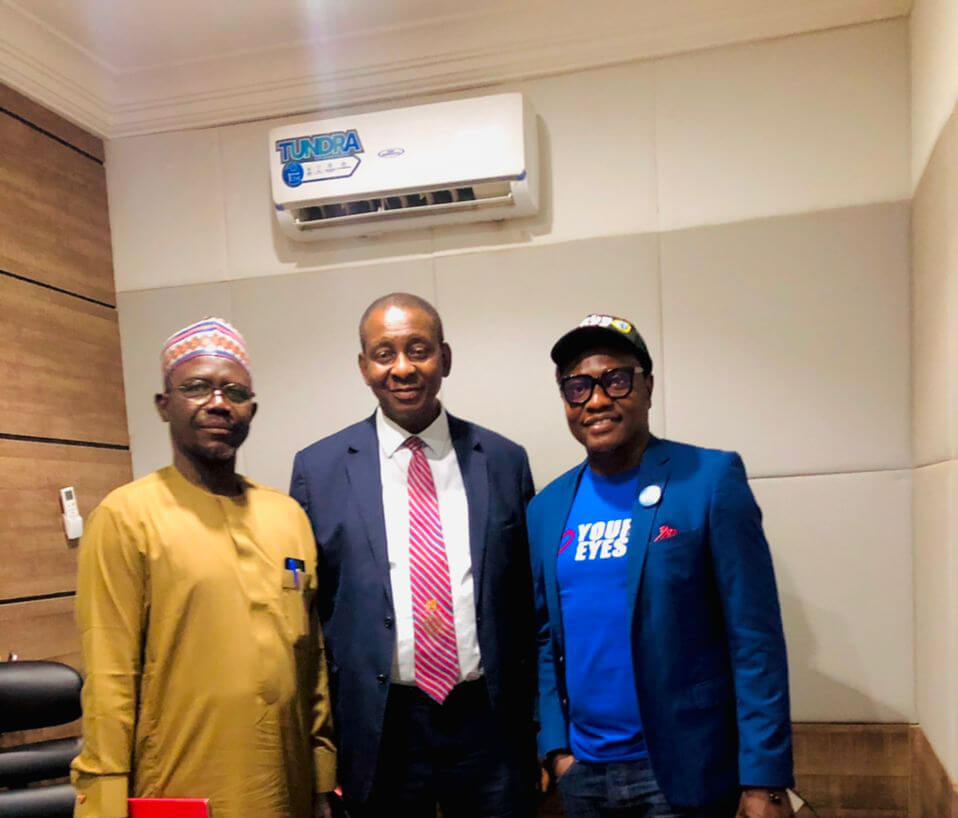The Nigerian Optometric Association gladly joins the World Health Organization (W.H.O), the International Agency for Prevention of Blindness (IAPB), the Ministry of Health and the rest of the world to celebrate World Sight Day (WSD), which is usually marked every 2nd Thursday in October.
This year’s World Sight Day is on Thursday, October 13th, 2022, and we are drawing the world’s attention to the importance of eye care. We are also calling on all stakeholders and leaders in the eyecare sector to join us to help people prioritise their own eye health by ensuring that eye care is accessible, inclusive and affordable to everyone, everywhere.
The theme for this year’s event is “Love Your Eyes”, which is also an extension and consolidation of the milestones attained the previous year. It is hoped that this year will build on the success of last year’s campaign, which saw over 3.5 million pledges to prioritize eye health. This will encourage individuals to take care of their own eye health and draw attention to over a billion people worldwide who have vision loss and do not have access to eye care services. Hence, a total of about 5 million pledges are being targeted this year.
It is of global concern that at least 2.2 billion people have visual impairment or blindness, of whom at least 1 billion of these cases could have been prevented. It is also interesting to know that the leading causes of visual impairment and blindness are uncorrected refractive error and cataracts; both conditions are easily preventable. Of the 1 billion people, 88.4 million have moderate or severe distance vision impairment or blindness due to uncorrected refractive error, and 94 million have cataracts with glaucoma, which causes irreversible blindness, accounting for 7.7 million. Also, in a recent study by Holden et al., (2016), it has been predicted that over 48% of the world population will be myopic by the year 2050.
The economic, psychological, and social burden of visual impairment continues to re-echo and stare humanity in the face. This is due to the fact that visual impairment and blindness cause a considerable and increasing economic burden, which affects not only persons with vision loss and their families but also societies at large with its attendant cost. In 2018, research on the economic burden of visual impairment in the United Kingdom revealed that the value of the loss of healthy life associated with sight loss and blindness was estimated to be £19.5 billion. The burden tends to be greater in low- and middle-income countries and underserved populations, such as women, migrants, indigenous peoples, persons with certain kinds of disability, and in rural communities.
The prevalence of distance vision impairment in low to middle-income regions including Nigeria is estimated to be four times higher than in high-income regions; rural versus urbanization and uncorrected near vision from presbyopia are major concerns in recent times.
Though the majority of those with visual impairment is over 50; children are not left out as 1 out of every 3 children in Nigeria has an uncorrected visual impairment, which will affect school work, learning, recreation, and self-esteem and may encourage truancy, delinquency, and dropouts.
In Nigeria, the National Blindness and Visual Impairment Survey has shown that uncorrected refractive errors are a major cause of visual impairment, with about 77.9% of mild visual impairment being caused by it. As activities kick off, all members are encouraged to show commitment towards eradicating avoidable visual impairment and blindness and the psycho-social and economic implications associated with it.
This year’s World Sight Day is unique judging from the fact that this is the first time all Eye care professionals are in collaboration through the National Eye Health Committee. All stakeholders in the eye care sector, including the Nigerian Optometric Association (NOA), Ophthalmological Society of Nigeria (OSN), Nigerian Ophthalmic Nurses Association (NONA), and Association of Nigerian Dispensing Opticians (ANDO), are working as a team across all states of the federation and the FCT.
The presidents of these various associations are already in Abuja alongside the chairman of the National Eye Health Committee to push for advocacy in eye care. Hence, this collaboration is expected to yield more positive outcomes towards achieving universal health coverage. We also believe that this collaboration will go a long way in fostering peaceful co-existence among the eyecare practitioners in the interest of the public.
We, therefore, call on the government to take the lead and support the eye care sector in terms of more funding and engagement of optometrists to offer the services for which they have been trained. This will go a long way towards enshrining quality outcomes in the health sector. We are also appealing to the government to ensure that eye care services are effectively covered at all primary health centres across the country, giving access to those in need of eye care services in remote areas.
Above all, I hope that as we celebrate and raise awareness this year, there will be a positive response and call to action towards eradicating avoidable blindness.
Let us all unite and work as a team towards changing the world for the better. The “Love Your Eyes” campaign encourages individuals to prioritise their own eye health whilst advocating for quality, accessible and affordable eye care the world over.
“Love Your Eyes”, everybody counts.
Dr Obinna Awiaka
President, NOA

